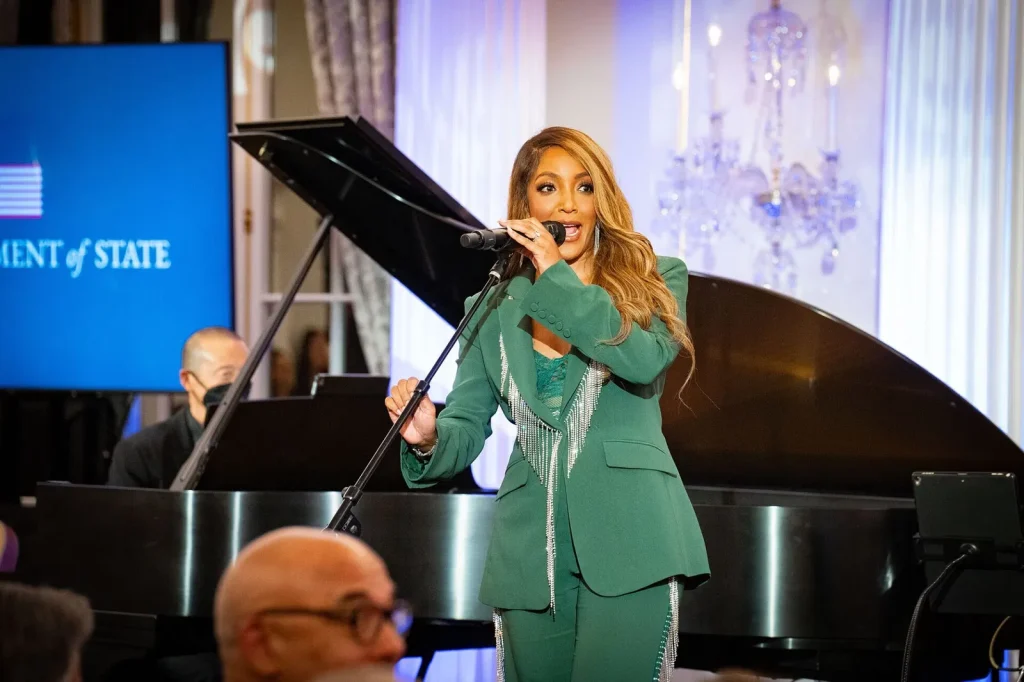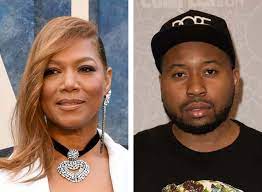Mickey Guyton reflects on ‘Black Like Me’ and country music’s ongoing journey.
The singer’s impact goes well beyond the music charts.

When Mickey Guyton released “Black Like Me” in June 2020, it was a reflection of the times. Written amid political unrest and released after George Floyd’s murder and global protests for racial justice, the song was a call for understanding and a bold truth-telling moment. “If you think we live in the land of the free,” she sang, “you should try to be Black like me.” That line challenged country music’s traditional identity, forcing the industry to confront the harsh realities faced by one of its own.
Five years later, Guyton, now in China, continues to reflect on the song’s impact while sharing her message with new audiences. But her stance remains just as strong.
“I just remember the pain I felt,” Guyton says. “Yes, it was a beautiful song, but it was hard that it took such tragic events for people to notice. Finding success in that wasn’t exactly something to celebrate.”
Even with her Grammy nomination (the first for a Black woman in the Best Country Solo Performance category), Guyton says the moment carried a sense of responsibility rather than celebration. “There was so much, and still is so much, turmoil in the world,” she shares. “I feared people would just move on and return to the way things were. And that’s happening right now.”
Since “Black Like Me,” Guyton’s influence has gone far beyond the music charts. She’s performed the national anthem at the Super Bowl, graced the GRAMMY stage, hosted award shows, and, most importantly, opened doors for a new generation of artists.
She also played a key role in a major shift within the Recording Academy. This month, the Grammys introduced a new category for the 2026 awards: Best Traditional Country Album, which separates the former country album category into traditional and contemporary.
“It’s something we’d been pushing for since at least 2017,” Guyton says. “Before, contemporary artists like me were up against legends like Willie Nelson and Dolly Parton in the same category. It wasn’t fair to either side. Voters didn’t always listen to all the albums; they voted based on name recognition. This change gives more artists a real opportunity.”
For Guyton, the change isn’t about segregation — a misunderstanding she’s seen online. Instead, she believes the shift promotes better representation and recognition. “What is the artist’s intention? If they say it’s a country album, we should honor that. That’s what I’ve been fighting for.”
She’s also quick to give credit where it’s due: “Thank you, Beyoncé. Honestly, she has helped make these changes just by being herself.”
This Juneteenth, the connection between freedom, music, and Black identity feels stronger than ever. For Guyton, it’s both personal and essential.
“Beyoncé releasing Cowboy Carter… seeing fans in cowboy boots and line dancing… I see a sense of freedom within the Black community,” Guyton says. “It’s the epitome of what Juneteenth is. But I’m still in a lot of pain. I think this is crucial for our peace and our community right now, at this particular time in America.”
Guyton reflects on the emotional weight of the past five years — from political exhaustion to the need for community. “I hosted the White House tree lighting one year and told one of the Black women working the event, ‘I don’t think I can ride at dawn anymore.’ She said, ‘We are resting at dawn.’ That’s where I’m at. I need to be with people who heal me.”
Still, the changes she’s seen since 2020 give her a cautious sense of hope. “It’s not that people didn’t like country music. Black Like Me gave them permission to dream within the genre,” she says. “There’s this outlaw, underground world of country now — and it includes artists who don’t fit the old mold. But I still hear labels telling new Black artists, ‘There’s no market for Black country.’ That’s not just wrong — it’s dangerous.”
“Beyoncé releasing Cowboy Carter… seeing fans in cowboy boots and line dancing… I see a sense of freedom within the Black community,” Guyton says. “It’s the epitome of what Juneteenth is. But I’m still in a lot of pain. I think this is crucial for our peace and our community right now, at this particular time in America.”
Guyton reflects on the emotional weight of the past five years — from political exhaustion to the need for community. “I hosted the White House tree lighting one year and told one of the Black women working the event, ‘I don’t think I can ride at dawn anymore.’ She said, ‘We are resting at dawn.’ That’s where I’m at. I need to be with people who heal me.”
Still, the changes she’s seen since 2020 give her a cautious sense of hope. “It’s not that people didn’t like country music. Black Like Me gave them permission to dream within the genre,” she says. “There’s this outlaw, underground world of country now — and it includes artists who don’t fit the old mold. But I still hear labels telling new Black artists, ‘There’s no market for Black country.’ That’s not just wrong — it’s dangerous.”
For young Black women who love country music but don’t see themselves in the mainstream, Guyton has this advice: Do it your own way.
“Every single one of us who made it had to go around the system. Find a team that won’t try to change who you are. Build your audience. Own your story. A 60-year-old white man doesn’t know what the culture needs more than you do.”
It’s a message born not from victory but from hard-earned experience. “I’ve been through the wringer. I’m a broken person. But I say this so the new generation doesn’t have to be.”
So, what does she hope people will say about “Black Like Me” in 2030?
“I hope it becomes an evergreen song — like Marvin Gaye’s What’s Going On. Something that lives in history and captures exactly how people felt, and still feel,” she says. “Because sadly, it’s the same script, different cast.”
And for those wondering how they can support the movement beyond social media posts or hashtags, her message is clear: Put your money and streams where your mouth is.
“Beyoncé’s fans loved Cowboy Carter, but some of the featured artists? They lost record deals even after being on that album. If every fan just streamed one of their songs, bought a $1.99 sticker, or went to a show — that could change lives. We’re still here. We’re still making country music. We just need the support.”
Guyton will be performing in China, sharing her Black experience as an American woman, using “Black Like Me” as a tool to educate and connect. Five years later, Mickey Guyton’s voice still echoes with truth. And she’s far from done.



